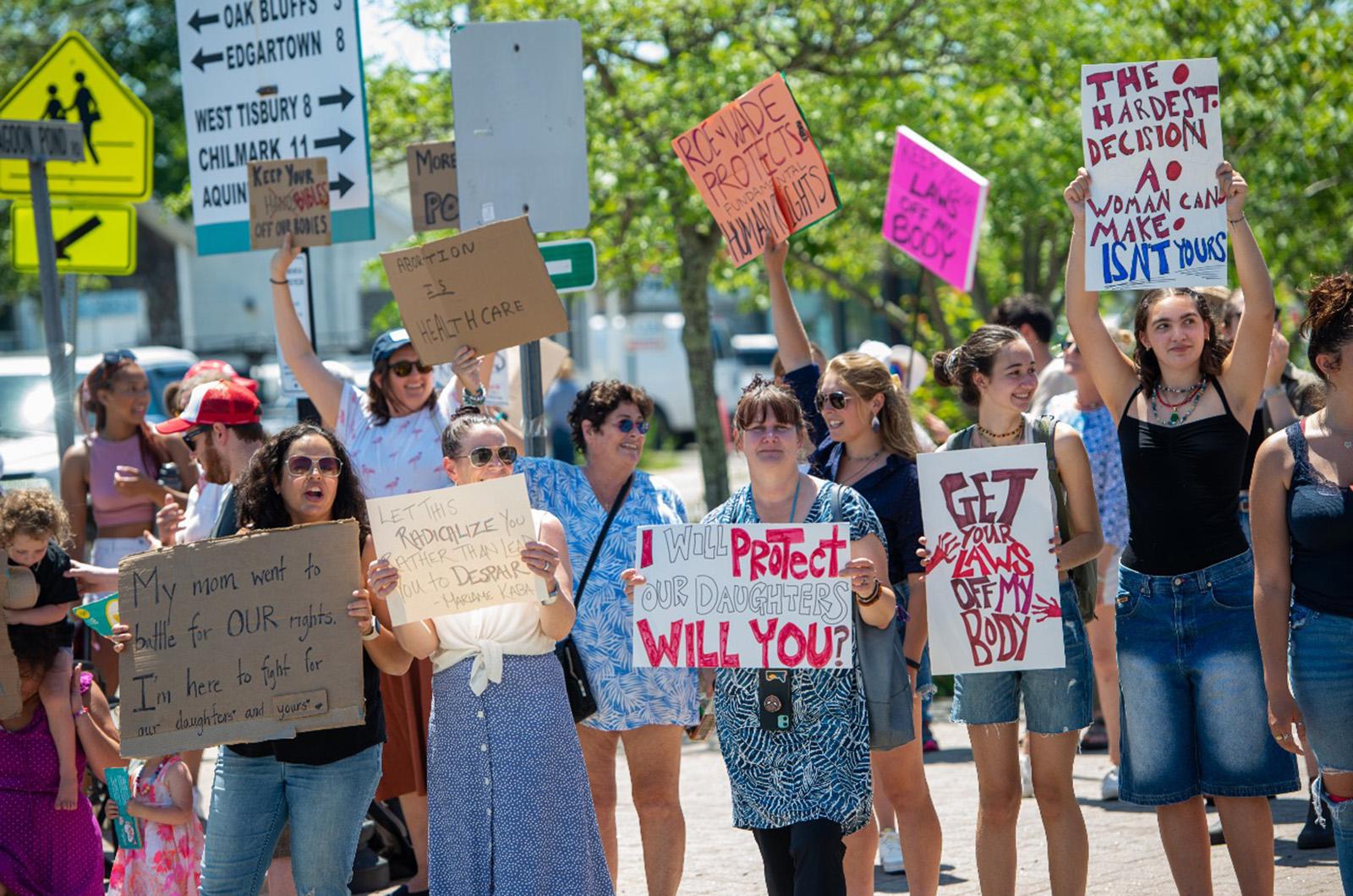Reproductive health advocates on the Vineyard and throughout the state said a Texas judge’s decision to strike down the federal approval of the abortion drug mifepristone will not impede Island and mainland healthcare services’ ability to provide the drug.
Texas district court judge Matthew Kacsmaryk made his ruling on Friday, threatening access to the drug nationwide just months after the Vineyard received direct access to the medication. Health Imperatives, the nonprofit health clinic network that provides reproductive health services on the Island, assured that they were still on track to begin prescribing medical abortions using mifepristone beginning July 1.
In December, Health Imperatives received $100,000 in state funding per clinic to provide direct abortion services on-Island. The clinic currently offers abortion medication prescribed through an out of state provider. In July, all that will change is that patients will be able to pick up their prescription on-Island instead of receiving it in the mail, Health Imperatives executive director Julia Kehoe said.
Ms. Kehoe added that the organization had been preparing for the ruling for months, stockpiling roughly a year’s worth of mifepristone for its seven clinics located throughout Massachusetts.
“As disturbing as the decision is, we’re very fortunate to live in a state where people are doing everything they can to preserve the right,” Ms. Kehoe said. “People can still come to us for services.”
Texas’s ruling has drawn ire from politicians, abortion access advocates and medical professionals alike. The drug, often used in combination with misoprostol to induce an abortion without surgery, has been declared safe and effective by the federal Food and Drug Administration for more than 20 years.
“It’s the gold standard in medical abortion care,” Gov. Maura Healey said in a press conference Monday, adding that the medication is also commonly used to treat miscarriages and diseases such as lupus.
The Department of Justice was given one week to appeal the judge’s ruling before it goes into effect, potentially ending access to mifepristone nationwide.
However, Governor Healey pledged “immediate action” and announced Monday that she signed an executive order to protect medication abortion under Massachusetts state law and had the University of Massachusetts and other health care providers stockpile more than 15,000 doses of mifepristone in advance of the ruling.
The Healey administration also dedicated $1 million to funding clinics purchasing abortion medication.
“We are effectively saying loud and clear, ‘Not on our watch,’” U.S. Sen. Elizabeth Warren said at the press conference. “Mifepristone will remain safe, legal and available in the Commonwealth of Massachusetts.”
Senator Warren added that the Department of Justice has already appealed the ruling to uphold the FDA’s approval.
Regardless of mifepristone’s legal status, Ms. Kehoe said that Health Imperatives is also able to provide abortions using just misoprostol, which offers similar results but with a greater chance of side effects like cramping.
“Abortions using just misoprostol are still effective and still safe,” she said. “We’ll be moving forward as planned.”
Terre Young, president of the board of Friends of Family Planning, a fundraising organization for reproductive health services on-Island, reiterated that the organization will continue to provide financial assistance to any kind of reproductive health service, from abortions to vasectomies.
“This is a new scenario,” Ms. Young said. “The offer remains. We want to help people.”
Elizabeth Barnes, a Vineyard resident and president of The Women’s Centers, a network of independent abortion providers, was encouraged by Governor Healey’s reaction, but cautioned that the ruling in Texas would still have far-reaching implications across the U.S.
“It’s important to remind people that this has never happened before, with a judge challenging a medication that had been approved and in use for over 20 years,” she said.
Ms. Barnes pointed to a recently-signed law in Idaho that criminalizes helping a minor seek out of state abortion services, punishable by two to five years in prison. She argued that the law, one of the most extreme abortion restrictions in the country, set a dangerous precedent for medical freedom.
“People should be very worried,” she said.
When asked what Islanders could do in light of Friday’s ruling, Ms. Barnes urged residents to consider funding voting rights organizations in states with abortion bans, as well as abortion funds that cover travel expenses for individuals seeking abortions across state lines.
“It’s wonderful to live in a state with a governor on the right side of history,” she said. “There’s many others who don’t...we don’t want to give up on our sisters.”







Comments
Comment policy »